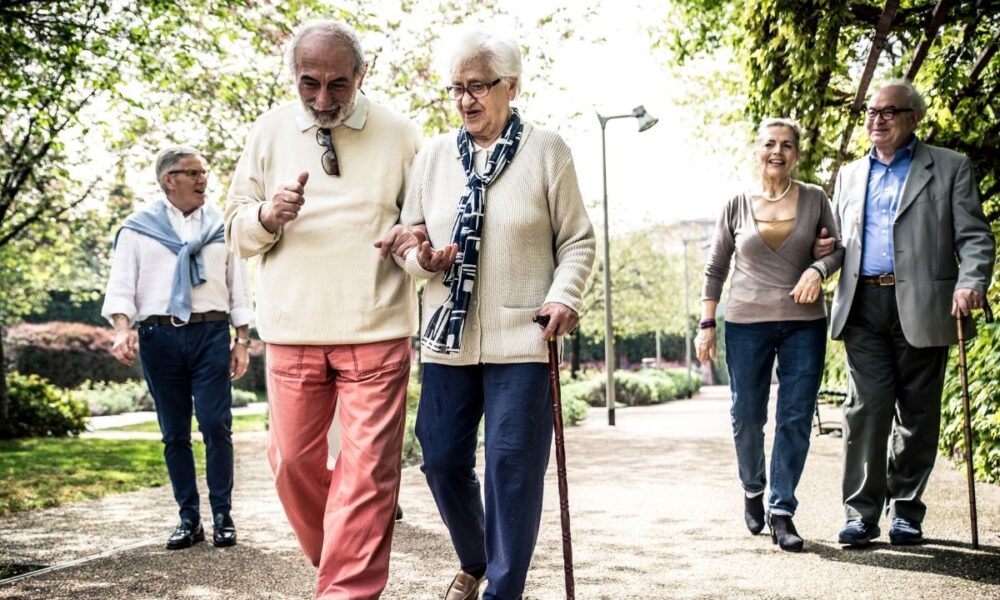A new study suggests that walking a bit faster can yield significant benefits.
Researchers found that incorporating some intensity into your physical activity, regardless of age, can lead to improvements in physical function.
“It’s okay to sweat a little bit, to have your heart racing a little bit, to breathe a little heavier… Even as a 79-year-old,” said Daniel Rubin, the study’s lead author and an associate professor of anesthesia and critical care at the University of Chicago.
The study, published in PLOS One, set out to confirm whether walking faster could help older adults counteract frailty, characterized by fatigue, slower movement, and reduced strength. The authors found that when participants in the study walked 14 additional steps per minute compared to their typical, casual pace, they reaped a greater benefit from the movement.
The study examined the walking pace of over 100 older adults with a median age of 79. The participants were frail, with over 50% requiring the assistance of a cane or walker, and none were particularly active, averaging around 3,700 to 3,800 steps per day before the study.
Each of the retirement communities involved in the study was randomly assigned to one of two groups: casual or high-intensity walking. The individuals walked three days a week for four months.
Both groups followed the same progressive training routine, which included a warmup, stair-stepping, walking with five-pound ankle weights, and walking in different directions.
The only difference between the two groups was the pace at which they walked. The casual pace group walked, on average, 77 steps per minute, while the high-intensity group walked 100 steps per minute.
After four months, the high-intensity group was found to have a meaningful improvement in their physical function, as tested by the distance they could cover in a six-minute walking test.
As previously reported in The Dallas Express, faster walkers often possess stronger muscles and better coordination, while those who move more slowly may be signaling health issues, such as chronic obstructive pulmonary disease (COPD).


